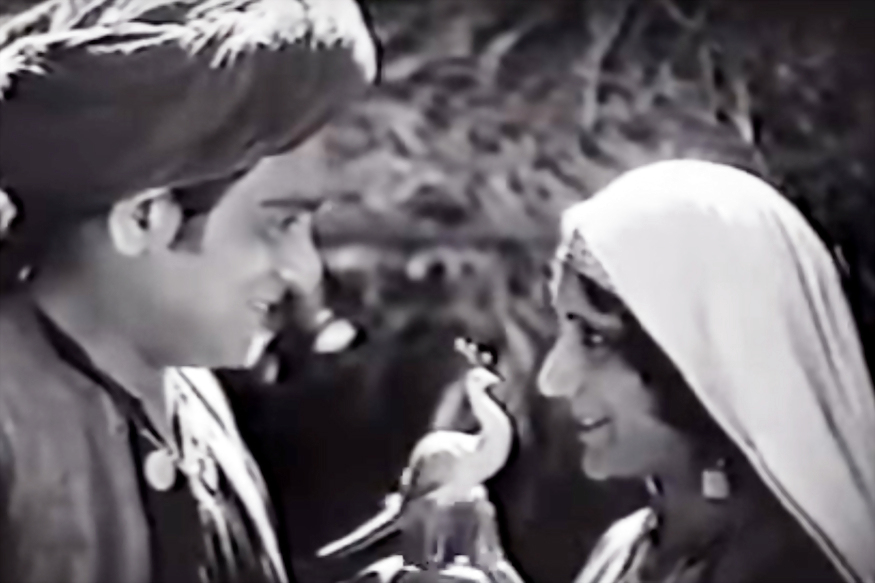
views
Anoushka Shankar is probably one the finest names in the field of classical Indian music who has been applauded and loved for her talent as much as her legacy.
Deeply rooted in the Indian classical music tradition, Anoushka studied exclusively from the age of nine under her father and guru, the late Ravi Shankar, and made her professional debut as a classical sitarist at the age of thirteen. By the age of 20, she had made three classical recordings and received her first Grammy nomination, thereby becoming the first Indian female and youngest-ever nominee in the World Music category.
Through her bold and collaborative approach as a composer, Anoushka has encouraged cross-cultural dialogue whilst demonstrating the versatility of the sitar across musical genres. As a result, she has created a vital body of work with a prominent roster of artists such as Sting, M.I.A, Herbie Hancock, Pepe Habichuela, Karsh Kale, Rodrigo y Gabriela, and Joshua Bell.
Now the artiste is all set to step into the film world as she has composed music for her first-ever film, a restored version of 1928 classic Shiraz. The film tells the love story of the 17th-century princess who inspired the construction of the Taj Mahal. For the modern viewer, the appeal of Shiraz is the extreme rarity of a sophisticated silent feature film made outside the major producing nations of the West, the gorgeous settings and costumes and the glories of the spectacular fort at Agra and of course the iconic Taj Mahal, a central character here in its own right.
Recently, News18 caught up with Anoushka and talked about the film and her first experience as a music composer. Here are some excerpts from the interview.
On deciding to compose music for a film
The human element in the film attracted me towards Shiraz
I watched the film first in its unrestored form so I've seen the journey of where the film has come to and what BFI has done to restore the classic is really incredible and it looks glorious. But even when I saw it in its first form, I found it very moving because I had never seen anything from that time period before. I've never seen such an early example of cinema from India.
I get really moved by seeing people from history- to see the moving images of people, living life 100 years ago, and to see that in a kind of grand scale in Shiraz. It's a piece of our history and it's lovely to watch that again.
In my first response to the film, I was quite amazed at its scope and its scale. It was a co-production of different culture and I find that very moving and that is something that I do in my own music today. Beyond that, if you think of a film made 90 years ago, it's the human element. This film we are presenting it now, it was made 90 years ago but it is set in the 17th century. So when we speak about the film, we could be speaking about any number of time periods. Yet the themes are the same, people falling in love, it’s people trying to be happy, it's people finding their way in life and there's a kind of simplicity in the continuation of that.

On planning her music
Kept the live performance and scheme of the music in mind while designing the palette
This score I've made for Shiraz has probably been the hardest thing that I've done and at the moment, I would say that though it has been difficult it has been an equally rewarding and fulfilling project to take part in and I felt that most strongly when we did the performance at Barbican, to see the film come to life in all its glory with music being a part of it.
This score was booked to be on a future DVD but also something that was meant to be a live performance. So I knew from the beginning that I have to choose an ensemble that I'll be performing the music with and that kind of limitation I actually find quite freeing because otherwise, it's a very open palette, I can go any direction but because I knew I had to choose an ensemble that became my sound pallet from the beginning.
On giving music score to a film for the first time
The experience was very intense yet fulfilling.
I learned a lot about how important music is to a film, it is hard to engage the audience without it. Music does help bring it back to life, I hope I've done that well. I am grateful for that.
Playing for a film is completely different from what I've done before. You cannot relax for one second otherwise the film will move ahead without you. Unlike live performance, there's no possibility of taking a song a tiny bit slower or add one more line because you feel like it. It is all about precision.
On exposure of classical music in India
There are millions of other classical musicians who don't even get one interview.
It's just a joke but the fact - that audience here is a little reluctant when it comes to applauding - is true. Indians, in general, are more of a vocal audience than a clapping audience. In the west, you get something back from the audience. It's not about the love though.
How many classical singers get enough of a platform in the media for enough young people to even hear about them, learn about them or relate to them? I've had the fortune of a platform. The time when I was 13 I've been speaking to the media. So for 20 years, I've been speaking to the press, voicing my opinions, sharing my story. So that makes sense that young people might relate to me more because they feel like they know me, they've heard about me. But there are millions of other classical musicians who don't even get one interview.
On sexism in the industry
It’s just about sexism fundamentally and that's what we need to talk about.
It's not about discussing sexism in any one industry, the bigger question is sexism as a whole. Because if sexism exists then it will exist in every industry so actually we have to get to the root and talk about it. Sexism in the home, sexism in education, in the policy-making, in the government that’s where it needs to change. Otherwise, we are just going around circles. It’s just about sexism fundamentally and that's what we need to talk about.
















Comments
0 comment